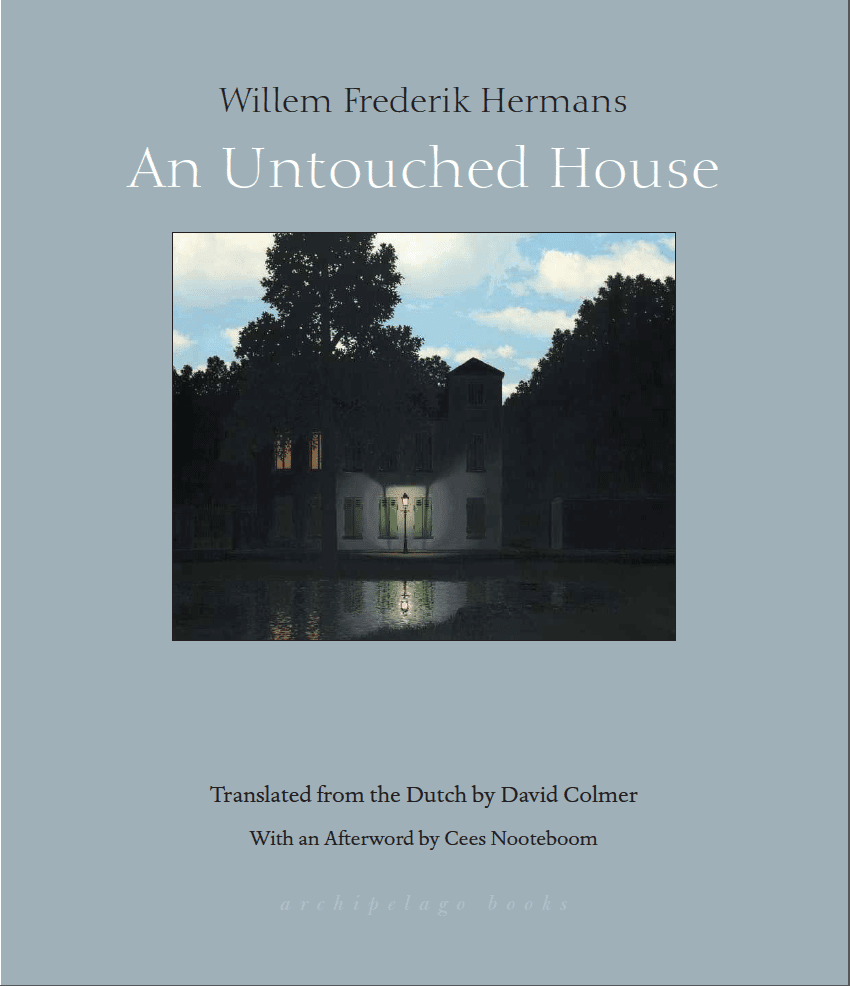Praise
It is a novel of desperate survival. But the sensation it transmits is not desperation; rather, the entirety of it, even the horrific scenes of death and torture, feels like a nightmarish dream through which both the reader and the characters wander, without much choice and absolved of all morality . . . It is perhaps this very immediacy, the apparent inexistence of anything beyond the present moment, which makes Hermans’s novella not only bearable, but utterly immersive.
The most unsettling book I’ve read this year, An Untouched House proves the horror and inhumanity of the twentieth century just that: unsettled. Hermans’ pithy masterpiece is a warning.
Hermans’s novella is a bleak depiction of the absurdity of war, which knows no winners.
This novella is a fascinating portrait of a solipsistic mind, a scrupulous rendering of the erosion of human empathy that resonates in these uncivil times.
This is a brutal story that’s all the more shocking because it packs its ferocious series of punches into just 80 pages. It takes an hour or two to read, but An Untouched House is the kind of book that stays with you for ever.
From the opening pages, the translator David Colmer brilliantly evokes the laconic tone of a narrator who proves intelligent, resourceful and increasingly deranged . . . By any light, this eloquent marvel teases, bewilders, and unnerves.
[A] slim but potent war story . . . Hermans doesn’t deliver an explicit moral judgement on the narrator (indeed, he’s sweetly reasonable throughout), but the thundering violence of the closing pages sends its own message. Fire, a suicide attempt, torture, and hanging are all shadowed by men killing with a cynical, mocking cruelty, stressing Hermans’ point that dreams of peace can easily become entangled in violence. A dark wartime vision that evokes Koestler, Orwell, and Vonnegut.
An Untouched House is a small but unforgettable story about the schizophrenia of war. W.F. Hermans’s writing is implacably precise, always searching for truth, evocative but austere, and thoroughly addictive. Reader be warned: after An Untouched House you will want to read everything this great European author wrote!
Profoundly unsettling and haunt the mind for long afterwards
Crackling with uneasy tension . . . A beautiful new edition of a powerful and timeless, slim Dutch masterpiece, written in a spare and crisp style that brings to mind Camus
By any light, this eloquent marvel teases, bewilders and unnerves
A shocking Dutch classic . . . remarkable . . . It takes an hour or two to read, but An Untouched House is the kind of book that stays with you for ever
A violent apotheosis without equal in modern literature. A sadistic universe that offers no room for escape.
In An Untouched House, a disillusioned WWII partisan soldier deserts and finds an abandoned house where he decides to stay. What unfolds is a strange and taut psychological tale of how individuals might choose to ignore the horrors of the outside world until they inevitably come crashing down around them. Ending in an explosion of violence that illuminates the true savagery of the human heart, this little stick of dynamite is less than 100 pages and damn near perfect.
Hermans is one of Holland’s great 20th-century writers, yet little of his work has been translated . . . Comparisons with Joseph Heller, Kurt Vonnegut and even Kafka are not unreasonable, but Hermans has his own strong flavour. An Untouched House is shocking, and the seeming collapse of moral consequence is properly unsettling. It would certainly be good to have a lot more of Hermans’s work available here.
Unsurpassed in its stylistic precision, unsettling in its language, dialogue, atmosphere, humour.
[Hermans] granted me a silence in which I could hear this novel’s voice in all its purity, in all the beauty of the unexplained and the unknown.
Bleak, hilarious, angry, ruthless . . . Hermans is as alarming as a snake in the breadbin . . . hugely entertaining.
A literary tour de force.
The protagonist of this book has the most existential way of being in the world, being in the war, being under fire, and seeking refuge from the war . . . It is a wonderful book. It is absurdist, it's obscenely violent, and one of the best pieces of fiction I read about World War II in years
Extras
Watch this interview of W.F. Hermans, in Dutch.
Browse the Willem Frederik Hermans instituut page, and read a short biography of Hermans, in Dutch, here.
From The American Reader, read Jan Steyn’s “A Conversation with Translator David Colmer.”


